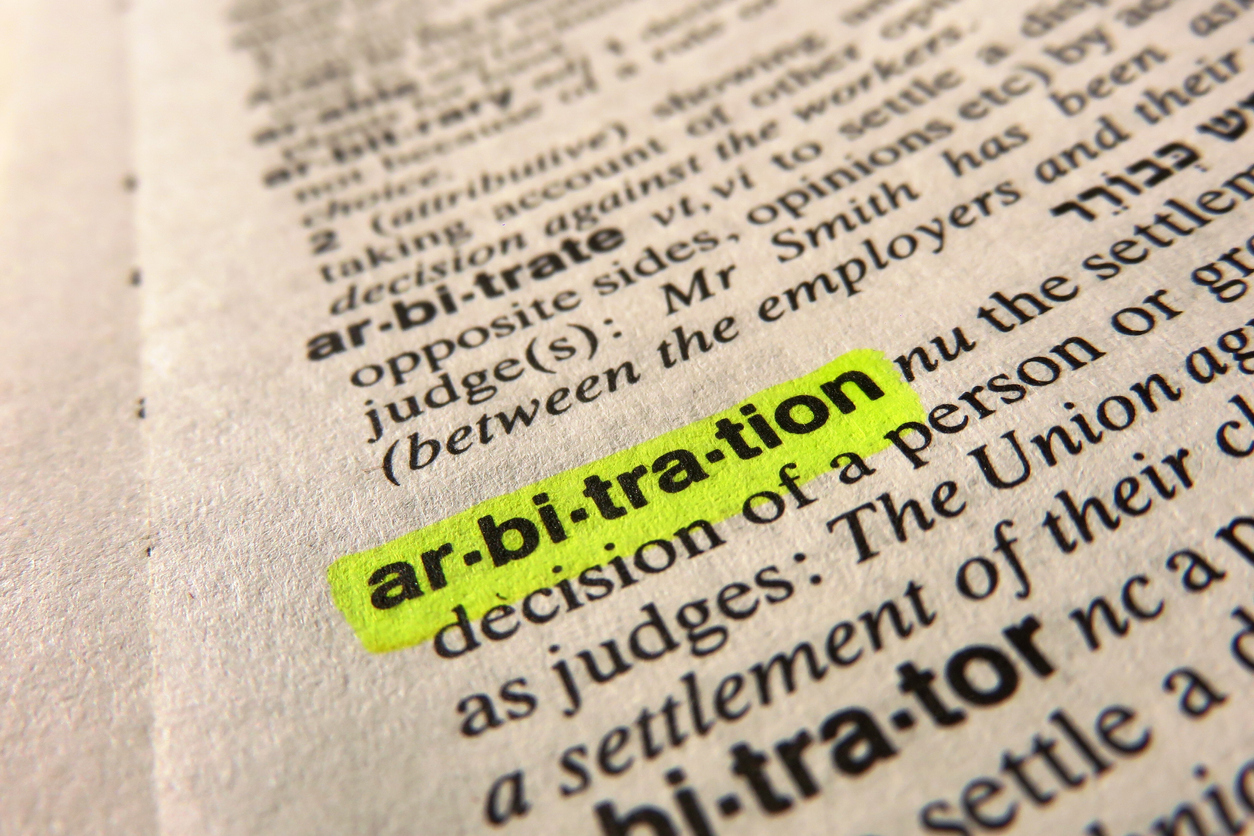Surplus line insurance companies often claim they are exempt from a state’s insurance regulations and statutes. Sometimes, they are exempted. This topic was ruled upon last week in Louisiana regarding Louisiana’s anti-arbitration statute.1
The American based, rather than a London based, Lloyd’s surplus lines carrier argued:
Defendant asserts that Louisiana law does not prohibit the enforcement of the Policy’s arbitration clause because the Policy is a surplus lines policy.23 Defendant argues that Louisiana Revised Statute § 22:868 does not prevent the enforcement of the arbitration clause because this provision does not apply to surplus lines insurance policies. Defendant alleges that § 22:868(D) specifically exempts surplus lines insurance policies from the statutory prohibition on arbitration clauses in insurance policies that would deprive Louisiana courts of jurisdiction or venue. Therefore, Defendant argues that the Court should grant this motion because courts interpreting Louisiana law have concluded ‘that surplus line carriers are not subject to the requirements of La. R.S. § 22:868 when a [p]laintiff seeks to invalidate a forum selection clause.’ ‘The instant case involves an arbitration provision in a surplus lines insurance policy. The central question this Court must answer is whether Louisiana law prohibits the enforcement of the Policy’s arbitration clause. Defendant asserts that § 22:868(A)(2)’s prohibition of insurance contract provisions that restrict the jurisdiction of Louisiana courts does not apply here because Defendant is a surplus line insurer. Plaintiff maintains that § 22:868 is an anti-arbitration provision and that Louisiana courts and the Fifth Circuit have held that arbitration ‘deprive[s] the courts of jurisdiction over an action against an insurer.’
The federal district judge disagreed and stated:
§ 22:868(A)(2) prohibits ‘any condition, stipulation, or agreement’ in any ‘insurance contract delivered or issued for delivery in this state’ that would ‘[d]eprive the courts of this state of the jurisdiction of action against the insurer.’ Because the plain language of the provision does not directly guide the outcome, this Court turns to the legislative history to ascertain the legislative intent underlying the provision.
In 1948, in response to the enactment of the MFA, the Louisiana Legislature promulgated Louisiana Revised Statute § 22:629 of the Louisiana Insurance Code, the predecessor to § 22:868, to reverse-preempt the FAA.59 In 2020, the Louisiana Legislature revised § 22:868 to add Section (D). Section (D) provides that ‘[t]he provisions of Subsection A of this Section shall not prohibit a forum or venue selection clause in a policy form that is not subject to approval by the Department of Insurance.’
In Macaluso v. Watson, the Louisiana Fourth Circuit Court of Appeal invalidated an arbitration clause in an insurance contract pursuant to the statute. The Louisiana Fourth Circuit found that an arbitration agreement between the insurer and the insured was ‘void and unenforceable’ because ‘its effect [was] to deprive the courts…of the jurisdiction of the plaintiff’s action against the insurer’ in contravention of La. R.S. 22:629(A)(2). The Macaluso court found that arbitration agreements encompassing all issues in dispute in insurance contracts violate the prohibition expressed in the Louisiana Insurance Code.
Here, the Court cannot enforce the arbitration provision because Louisiana law regards arbitration provisions in insurance contracts as a ‘condition, stipulation, or agreement’ that deprives Louisiana courts of jurisdiction over the action.63 Defendant’s status as a surplus lines insurer does not bear on the analysis. Defendant’s argument that § 22:868(D) exempts surplus lines insurers from the anti-arbitration provision relies on a strained interpretation of this Court’s prior jurisprudence. Defendant relies on a strained interpretation of Orders addressing motions to transfer pursuant to a valid forum selection clause contained in surplus lines insurance policies. This case is easily distinguishable because it involves an arbitration clause contained in a surplus lines insurance policy, not a forum selection clause. As other courts have recognized, the plain language of § 22:868(D) is limited to forum and venue selection clauses, and ‘to read arbitration clauses into the text of Subsection D would be to confer a different meaning than intended by the legislators.’ Numerous courts have found that § 22:868 is an anti-arbitration provision, voiding the effects of compulsory arbitration provisions in insurance contracts as contrary to public policy. In accordance with this established principle, this Court finds that ordering the parties to arbitration is inappropriate in this case.
This finding is similar to a post: The Property Insurance Policy Has an Arbitration Clause—Louisiana Court Says Policyholder Does Not Have to Go to Arbitration. I noted:
If non-American companies, like those Certain Underwriters at Lloyds, issue a policy with an arbitration clause, the treaty makes a policyholder go to arbitration. But if you are in a state with an anti-arbitration law like Louisiana, and all the insurers are American insurance companies that issued the policy, arbitration cannot be compelled.
Arbitration clauses, venue dispute clauses, and choice of law clauses are becoming more prevalent in surplus lines policies. Agents for the policyholder should strive to have local state law and forum apply because it is usually much more favorable for the policyholder. After the loss occurs, these provisions should be looked for immediately. If found, they should be closely reviewed because they can impact insurance coverage determinations, impact the deadlines post claims duties of the policyholder, as well as impact dispute resolution.
Thought For A Wednesday Afternoon
Just as fighters you have to be smart, you have to read the fine print in your contract and you have to do what’s best for your family.
—Benson Henderson




